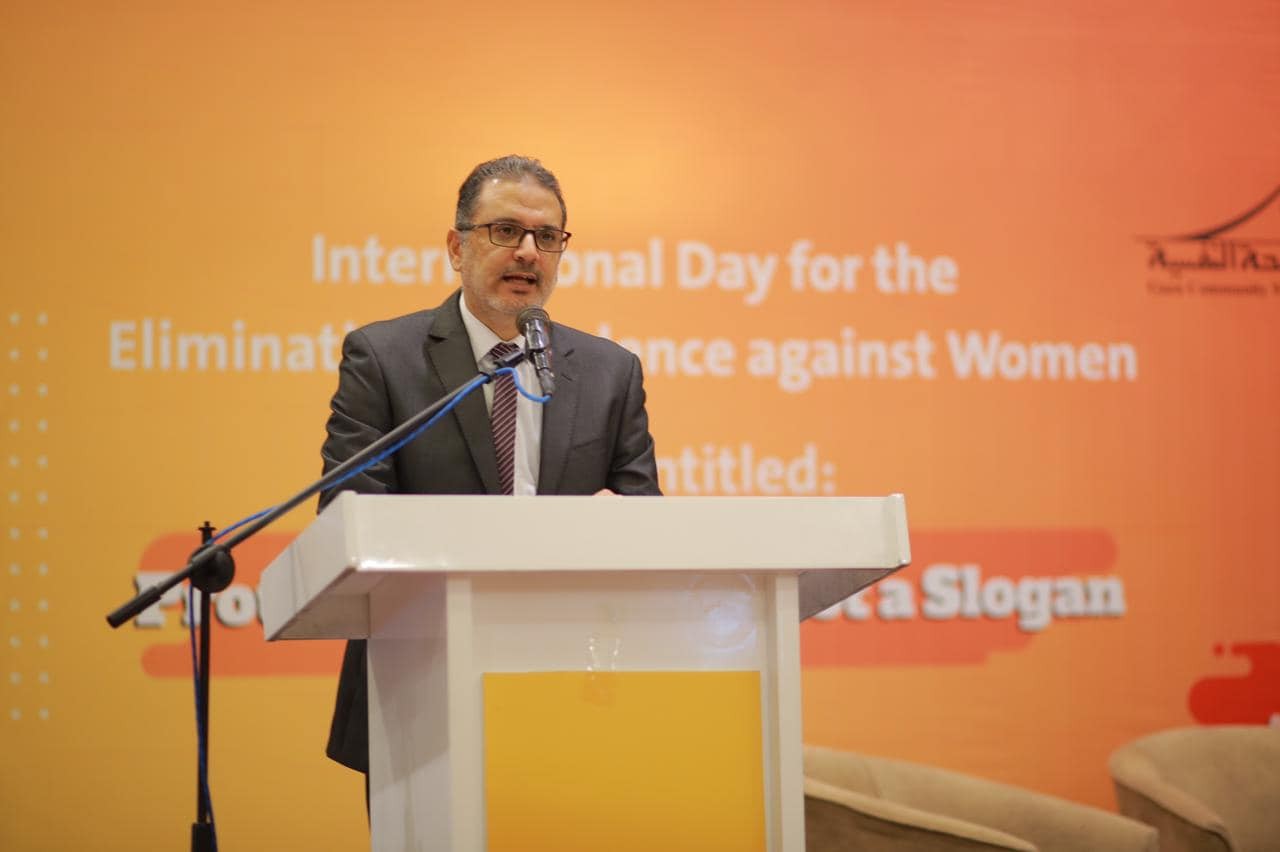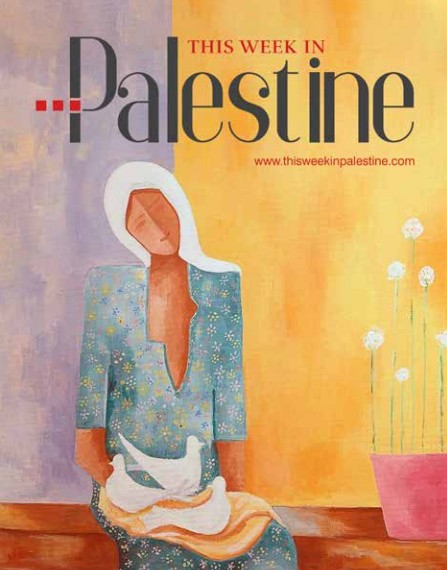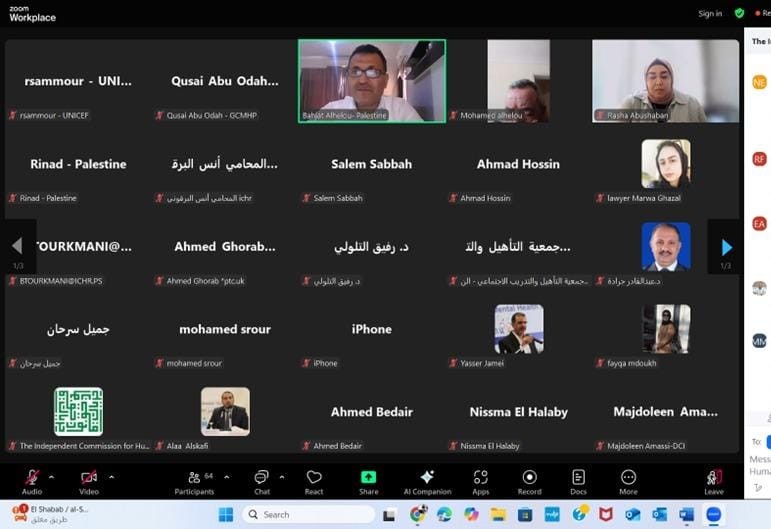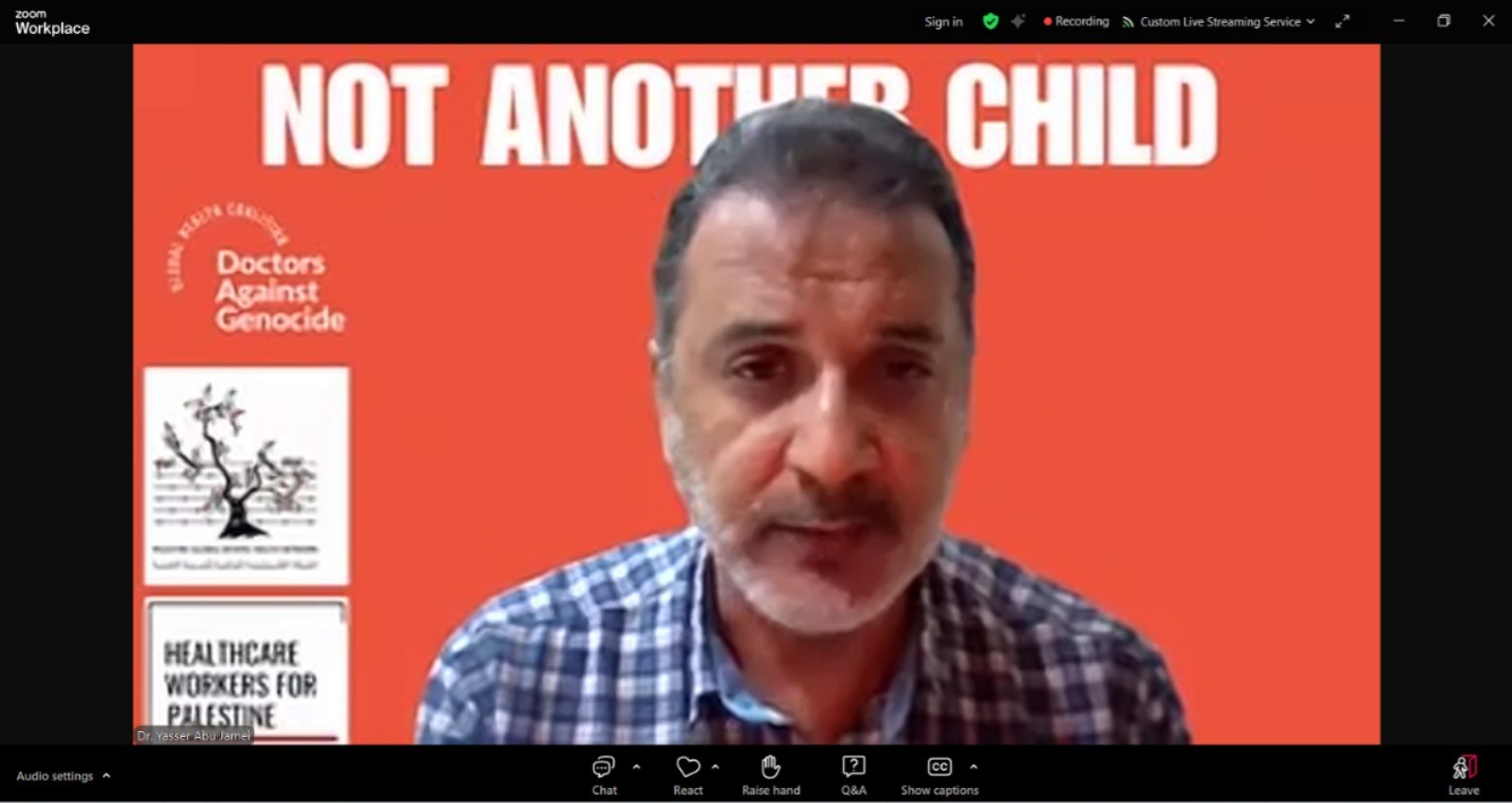
“Workshop – International Day for the Elimination of Violence against Women: ‘Protection Is A Path, Not A Slogan’”
Gaza Community Mental Health Programme has organized on December 14,
2022, a workshop on the occasion of the International Day for the Elimination
of violence against Women, marking the end of a campaign for women’s rights
that started on the 25th of November.
The workshop which carried the title ‘Protection Is A Path, Not A Slogan’ was opened by a speech delivered by Dr Yasser Abau Jamei, Director General, who presented GCMHP’s efforts in supporting women at the psychosocial level, but also at the level of advocacy and campaigning for their rights, quoting figures and statistics in this regard.
The workshop, attended by a large number of participants from local and international human rights and mental health organizations, included presentations about the social, legal and mental health state of women in the Gaza Strip.
In the first session, Dr Amal Abu Obada, GCMHP psychiatrist, presented a paper on “Women’s Mental Health Between Rights and Duties”. Then Ms Feryal Thabet, Director of Women’s Health Center of Al-Bureij, Presented a paper on “Sexual and Reproductive Health And Their Relationships of Violence”.
In the second session, Ms Fatemah Ashour, lawyer and human rights activist, presented a paper on “The Violence of Law And Its Impact on The Reality of Women; Gaps and Loopholes”, while Ms Taghreed Juma, Director of Union of Palestinian Women Committees Society, presented a paper on “the Socioeconomic Situation of Women and Causes of Violence”.
Following the two-paper presentation session, a short film was shown illustrating cases and forms of implicit and explicit violence practiced against women in the family and in general social contexts.
The workshop was concluded with an open discussion in which the attendees were given the space to raise questions and comments on some points mentioned in the papers presented by the panelists. Then recommendations, listed below, were made based on the output of the workshop.
Recommendations:
Enhancing women's awareness of their rights and not accepting the idea of violence under social and economic justifications, so that women can claim and defend their rights.
There is a need for the ruling authority to join the agreements related to women's rights.
Correcting ideas that carry the principle of male guardianship over women in obtaining their social and civil rights, such as travelling or seeking police protection and others.
There is a need to amend penal codes and social affairs laws to become more fair to women and also to be a deterrent in the event that women are subjected to violence, which is often justified under various pretexts such as honor and others.
The importance of promoting the awareness of adolescents about the physiological changes that accompany puberty, so that girls can accept these changes as soon as they occur.
There is a need to provide all services that support the sexual and reproductive health of women.
There is a need to administer physical examinations for women and provide training courses in sexual health before marriage.
There is a need to build a unified information system to obtain accurate statistics on the number of battered women and cases of violence.
There is a need to consider the complaints filed by women against abusers as a first step in the right direction towards achieving protection.
Equality between men and women in the academic admission keys in all disciplines must be achieved.
Promote women's rights as an integral part of human rights and based on the principle of citizenship, not on their sexual characteristics.
Promote the concept of equality in educational curricula and in the early stages of the adulthood.
Surgical operations for women should be performed after their personal consent.
Providing media content that respects women and establishes principles that enhance the role of women in the Palestinian communities.
Women’s role should not be limited to stereotypes and the reproductive role.
Networking with international organizations to support women, especially in times of crisis in, and intensifying the efforts by all the society’s organizations to support and uphold women's rights.




Read Comments
Steven Rich
March 10, 2019Omnis iste natus error sit voluptatem accusantium nam libero tempore, cum soluta nobis est eligendi optiocumque nihil impedit quo minus id quod maxime.
Van Wimbilton
March 10, 2019Natus error sit voluptatem accusantium nam libero tempore, cum soluta nobis eligendi optio cumque nihil impedit quo minus id quod maxime.